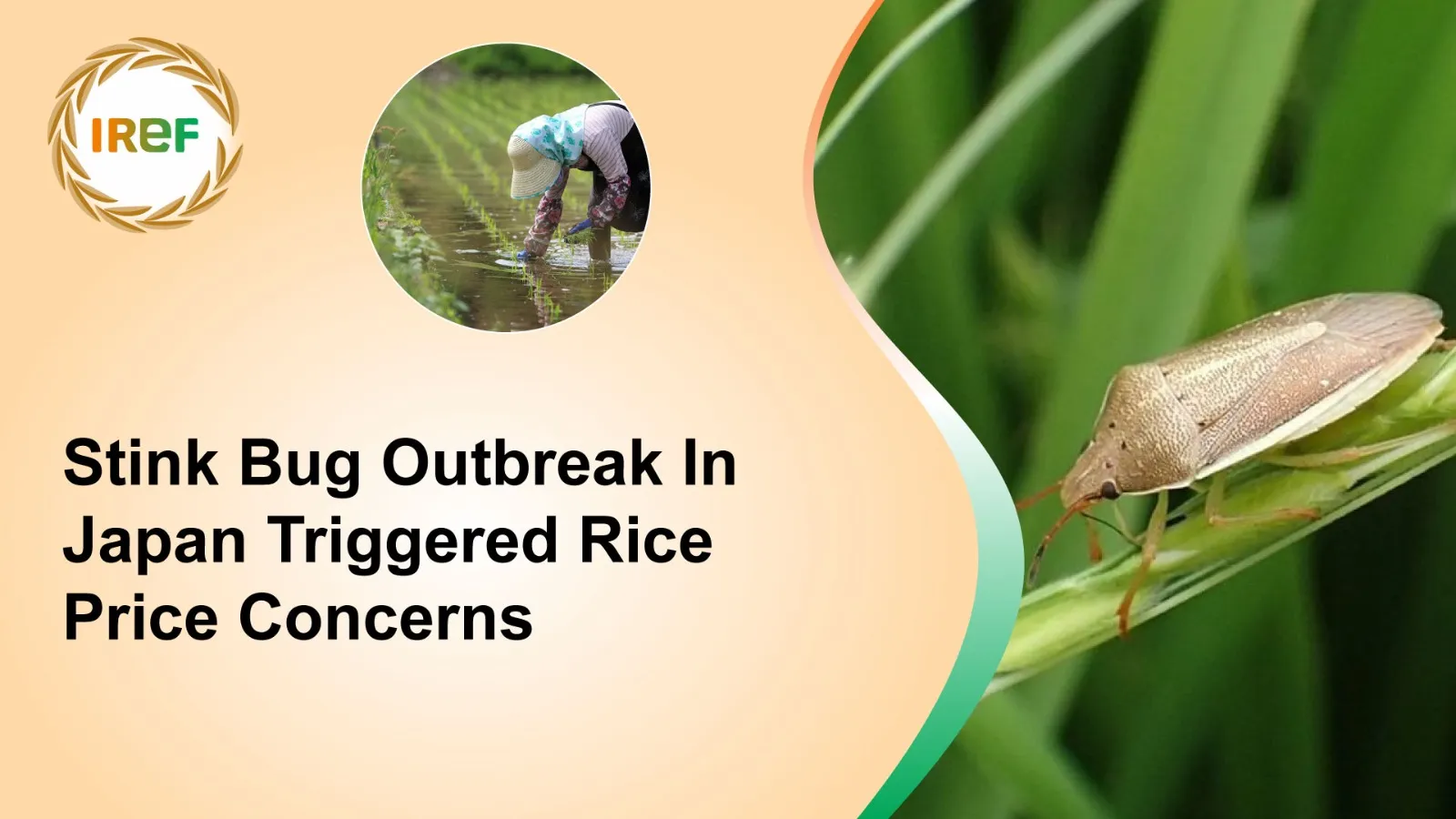Stink Bug Outbreak In Japan Triggered Rice Prices Concerns

Stink bugs are making their appearance stronger in the paddy fields in Japan, causing massive crop loss. Now, this sudden appearance of Stink bugs has cast a shadow over government policies that were intended to increase the rice supply. The extreme heat and warm winters in recent years in Japan have prompted the far-reaching spread of the so-called rice stink bugs. The bugs emit foul odour and go to grain-like plants such as rice. They attach themselves to a rice plant when it is forming its ear, pierce the grains with their stylets and suck out the juices. Consequently, the grains develop black or brown spots that are not suitable for human consumption.
Rice prices have been high in Japan since the summer of 2024
Rice prices have been high in Japan since the summer of 2024, and the central government is combating shortages of rice by improving production. However, they are afraid that damage caused by the bugs could severely affect the 2025 harvest, which the government has relied on to succeed
The rice crop loss caused by stink bugs cannot be neglected. The number of stink bugs that cause massive rice crop loss clinging to combine harvesters is also increasing.
According to the Agriculture, Forestry, and Fisheries Ministry, around 31 prefectural governments issued 39 stink bug warnings last year. However, 35 prefectures had issued 46 such warnings as of the end of August this year, which is the highest in 10 years. After rice has been harvested, adult stink bugs, which can lead to crop loss, migrate to nearby forests and other areas, where several die in the winter as they are sensitive to the cold. However, bugs are surviving due to the recent warm winters.
According to the Saitama prefectural government, which has issued three warnings this summer alone, it surveyed the number of rice stink bugs that had overwintered and confirmed that the bug’s population was 46 times larger this year than last.
Not only this, Intense summer heat may also be contributing to intensifying the insect populations, along with some research showcasing that sustained high temperatures of 35 °C or higher shorten the time it takes for insects to reach adulthood. This year, Japan intends to increase rice production by 560,000 tons. The figure is based on an analysis that found that the rise in rice prices is due to rice production not being able to meet demand by 760,000 tons over the past two years. The government has begun immediate support measures to help farmers with the cost of purchasing pesticides, asserting that the need to prevent stink bug damage and stabilise the supply, demand, and rice prices.